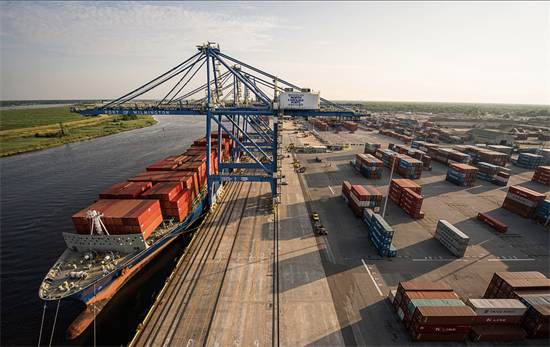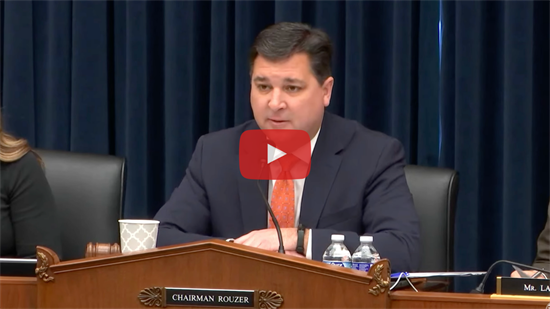WASHINGTON, DC - This week, Water Resources and Environment Subcommittee Chairman David Rouzer (R-NC-07) led the Transportation and Infrastructure Committee during a Full Committee hearing examining the state of American transportation infrastructure. Rouzer emphasized the importance of making targeted investments to responsibly improve our transportation network and our nation's ability to effectively move goods through our supply chain. Further, he highlighted the need to invest in meaningful infrastructure projects like roads, bridges, and ports as opposed to the Biden Administration’s misguided efforts to promote their green agenda.
Chairman Rouzer also discussed vulnerabilities in our supply chain, including the disruptions to maritime trade in the Red Sea caused by Houthi militant attacks on cargo vessels as well as the crisis at our southern border which has interfered with the movement of critical goods between the United States and Mexico.
Click here or on the image above to watch Rep. Rouzer's remarks.
Full remarks:
We are here today to discuss the state of our transportation network and our nation’s ability to effectively and efficiently move goods through our supply chain.
To achieve this goal, we must make targeted investments to improve the infrastructure our shippers, truckers, and freighters rely on.
We have work to do to improve our transportation network, and we have a responsibility to ensure that taxpayer funds are directed to projects that strengthen this system.
Despite the clear needs of our system, the Administration continues to push its green agenda through onerous regulations onto the American people instead of focusing its efforts on promptly distributing funds to projects that will meaningfully improve our roads, bridges, and ports.
A recent example of these misguided regulations is the Federal Highway Administration’s latest greenhouse gas emissions rule, something Congress expressly left out of the Infrastructure Investment and Jobs Act (IIJA).
However, our infrastructure system is just one factor to consider as we assess the state of transportation in the country.
We also have to examine our supply chain. The pandemic previously exposed vulnerabilities in our supply chain, and today’s global conflicts are presenting new and complex challenges we must address as well.
For example, the United States Navy is currently leading the international coalition to repel Houthi militant attacks that are threatening a critical global shipping route in the Red Sea. These threats have forced major carriers to opt for longer, more costly shipping routes, as they pause operations in the area.
And closer to home, the migrant crisis at our southern border has led to repeated closures of rail border crossings. As a result, rail operations were suspended – halting the movement of critical goods between the United States and Mexico in order to process the influx of migrant crossings.
I look forward to hearing from each of our witnesses today about the realities on the ground.
The committee stands ready to provide solutions – in May of last year we advanced more than a dozen bills targeting supply chain challenges. The testimony provided today will give us greater insight into what’s working and what’s not.
We look forward to working with you to strengthen our nation’s transportation network.
Click here for more information, including video and witness testimony.



